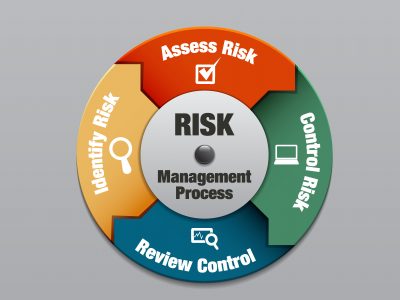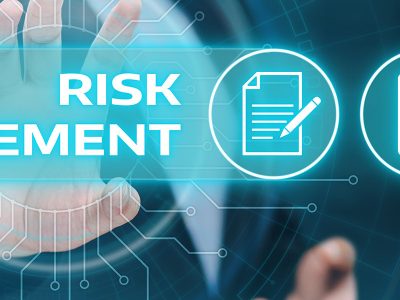It goes without saying that, ‘an ounce of prevention is worth a pound of cure’ when it comes to risk. Enterprise Risk Management (ERM), in its simplest form, means learning to expect the unexpected at an organisation level. It means that you, as a manager, must be able to identify, assess, and prepare for any potential events that are hazardous to a company’s well-being.
Why is a formal education in Enterprise Risk Management (ERM) important?
- For any organisation, the level of their performance depends upon the way they tackle the obstacles and challenges they encounter. Failure of an organisation in identifying, understanding, and managing these obstacles can prove to be a threat to the sustainability of the organisation.
- Every business has processes, and risks can originate from any of these processes. For example – any business organisation consists of several suppliers, distributors, producers. For any uncertainty in the supply chain of the organisation, would consequently have a significant impact on the overall business of the organisation. Therefore,
risk management assists organisations in identifying, understanding and managing risks and objectives, thus increasing the likelihood of achievement of its’ objectives.
- Uncertainties may transpire at any time, and to be able to respond to these unplanned events, risk assessment is essential. Every opportunity comes with a certain percentage of uncertainty attached to it, and with a robust ERM practice in place, an organisation can try to identify opportunities worth embracing.
- Not having a Plan B for uncertainties that may occur in the near future, can hamper the success of an organisation. Most objectives remain unachieved due to lack of consideration for unexpected events and hence it is crucial to identify and evaluate potentials risks at an early age.
- Risk Management plays an integral part in effective business planning because it reduces the chance of any injury at the workplace and provides a safe environment for the staff.
Given the risky world that we live in today, it is important to understand why risk management exists at all levels in an organisation. Ultimately, effective risk management results in improved decision making, and identification of troubled spots at an early stage can lay a foundation to the success of an organisation.
Altogether risk assessment helps you answer the following questions:
- What aspect can go wrong?
- How is it going to affect your business?
- What should you do?
- If an unexpected event takes place, how is it going to be paid for?
- What can be done to prevent it from affecting your business?
A formal education in ERM is the need of the hour because as a leader, you must be able to align your resources with strategic objectives. For any organisation that has to sustain in the long run, it is vital that it takes uncertainties into consideration. Any unprepared surprise in the future, can hamper the success and sustainability of a business and lead to losses and delay in achievement of objectives. Hence, being able to anticipate risks can be a foundation towards a sustainable business growth.
In today’s fast-moving world, it is possible to start a formal career in enterprise risk management with IRM’s global qualifications from Level 1 to Level 5. The Institute of Risk Management (IRM) [headquartered in the United Kingdom] is the world’s leading professional l body, with presence in over 140 countries. IRM’s global qualifications come with designations that have been recognised by the industry since the last 30 years
Given the risky world that we live in today, IRM’s qualifications provide students and professionals with exemplary complex problem solving, effective decision making and critical thinking skills. IRM members work in many roles and in all industries, be it finance, pharmaceuticals, IT or otherwise
Submitted by: Unnati Agarwal, Member of Student Risk Club (SRC)












